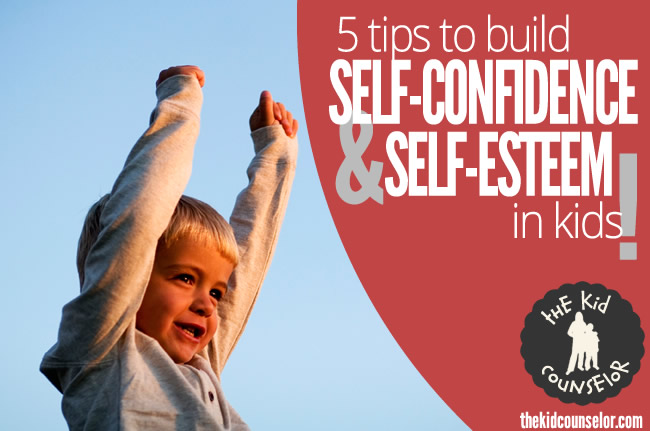I often wonder what my son thinks about what I tell him about himself. In other words, he develops an understanding of who he is and what he is capable of through what others communicate to him. In the course I teach at the University of South Florida, I spend a large portion of the semester teaching college students about how their self-concept is created. The number one influence is other people sharing their perspective of who they are with them – basically holding up a mirror for someone so that they become aware of their personality, their actions, their successes, their thoughts. So, in that line of thinking, I want to be purposeful in talking to my son about who I believe he is, and let him process that in time. I have written an article on self-esteem and answered a question from a parent about cultivating self-esteem, but I want to give five practical and easy ways to do that in this article.
1. Encourage Interests
It is sometimes easy to want certain activities to become important to your kids, if they are important to you. (I love baseball and I want my child to play on a team.) There can also be an unspoken expectation that you do not want certain interests to become part of your child’s life. (I do not want my child to become a cheerleader.) In order to allow your child to develop passion and drive for something, as little rules for what is acceptable as possible should be the goal. This includes gender role rules – girls can’t play football and boys can’t be a dancer. The more a child embraces something, the more they learn who they can be and what they want to accomplish. The more they understand themselves, the more they learn about how capable they are.
2. Demonstrate Respect
If your child hears you criticizing or judging others for their behaviors, actions or attitudes, it makes a child more wary of showing vulnerability and honesty in front of you for fear of the same. A child needs to have respect and understanding modeled as a way of observing the world around them – then they learn to form impressions based on neutrality. The same applies for when they struggle with something; it is not a problem, but something to figure out based on looking at the situation objectively. Once they conquer it, it boosts their self-confidence.
3. Teach Skills
On one hand, allowing a child to figure something out for him/herself is a major self-confidence booster. However, the more exposure a child has to learning new skills, the more he or she feels capable and confident that anything that comes in the future can be handled effectively. I grew up with a Dad who could fix anything (“Handy Randy”), and he let me watch and help him whenever he was working on something. I was always very proud (and still am!) that I know how to caulk baseboards, wire lighting fixtures, cut in with a paint brush, patch drywall, etc. There is an innate sense of accomplishment when you know that you have been taught to do something well.
4. Be Involved
There is little more powerful to a child’s confidence and self-esteem than knowing that a parent is always involved and invested in whatever matters to him or her. Whether that means sitting on the sidelines at games, cheering as a child finishes a puzzle, or watching a child figure out how to ride a bike for the first time, your time and attention is so valuable. It not only increases your bond, but it teaches your child that they can believe in themselves because they have someone who already does.
5. Demonstrate Self-Esteem
The strongest relationship influence in a child’s life is a parent. It seems that peers have more impact, but studies show that parents have the greatest and longest lasting influence. So, if you are critical of yourself or demonstrate disbelief in your abilities in front of your kids, it is likely that they will adopt a similar opinion of themselves. The more you show that you can accept your weaknesses and celebrate your strengths, the more you will encourage self-esteem in your kids to do the same.
Self-esteem and confidence are learned characteristics and traits, and children need opportunities to develop them. With encouragement, time and attention they can learn to embrace their capabilities and challenge their weaknesses. Regardless of how much or little they currently possess, there is always more to be gained with the right experiences. May your confidence in your parenting grow as you encourage confidence in your children!

